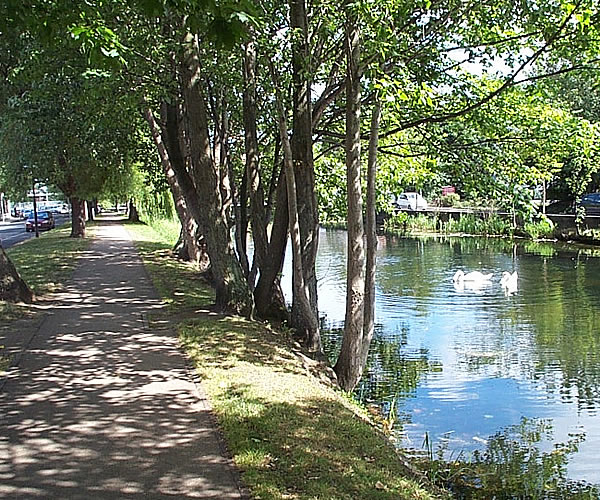
What telephone number should you call in an emergency when traveling in Ireland? Need an emergency phone number quick in Ireland? Thankfully the answer can be short for real emergencies: 112 or 999, which can be called toll-free from all landlines or mobiles and will connect you to the emergency services no matter which side of the border you are.
Police, Fire, Ambulance:
Dial 112 or 999 and ask the operator to put you through to the Gardai (Republic of Ireland). They will provide fire fighting and technical rescue if needed; roadside assistance for stranded cars (also often referred to as "rescue") is not part of their portfolio.
This dial also works from the Coast Guard and the Mountain Rescue or Cave Rescue.
These numbers are free of charge but should only be used in cases of genuine emergency. On answer, state which service you require, wait to be connected to that service and then clearly state the location of where the assistance is required.
In the case of a vehicle breakdown contact:
- Automobile Association (AA) (Tel: 1800 66 77 88)
- RAC Motoring Service (Tel: 1800 535 005)
Other Emergency and Helpline Phone Numbers in the Republic of Ireland:
- Alcoholics Anonymous (Dublin) - 01 453 8998
- AWARE Depression Support - 01 676 6166
- Irish Tourist Assistance Service - 01 478 5295
- Rape Crisis Centre - 1800 778 888 or 1800 212 122
Safety in Dublin
Ireland and its capital Dublin are generally safe and crime-targeting tourists are generally rare. Unfortunately, it sometimes happens. Here it's a list of the most common unsafe situations:
- Pickpockets and Bagsnatchers: Take the usual precautions - wear your valuables as close and as inaccessible as possible (and sensible) to your body. If you are carrying a bag with a strap, wear the strap across your body, not loosely off your shoulder. If you place your bag under the table in a restaurant or café, the easiest safety trick is to simply fasten the strap to a chair, or your leg. Never leave your valuables unattended, not even in the hotel or in the car.
- Robbery: The best precaution here is to avoid lonely streets out of hours, even if it means a detour or a taxi ride. Fighting back is definitely not recommended, as very violent crime may well arise out of this.
- Violent Crime: Gun crime is rare in Ireland. Although resistance to robberies, and indeed any reaction to verbal insults, can quickly lead to violent behaviour you may not have expected. Try to avoid any confrontation, and back off any person who seems aggravated.
- Rape: Sexual assault and rape are a problem especially in the larger towns and cities and normal precautions should be taken - avoiding deserted areas at night being high on the list.
- Homophobic, Religious, and Racist Hate Crime: Comparatively rare in rural areas and more part of life in cities and towns, homophobic crimes are commonly known as "gay bashing" and tend to happen spontaneously, often in the vicinity of known (or suspected) gay hangouts.
- Terrorist Activity: Since the late 1990s the threat of terrorism by republican or loyalist paramilitaries has severely declined, though some Republican dissidents still want to undermine the peace process by violent means. International terrorism has so far ignored Ireland - but the involvement of British troops in Afghanistan and Iraq, as well as the use of Irish airports by US military flights means that a certain risk remains.
- Car-Related Crime: "Smash and grab" attacks on tourist vehicles are a definite risk at all attractions and possible anywhere. The best prevention is simply not to leave any bags or valuables in plain sight - lock them into the boot, even when only leaving the car for a few minutes. Car theft and vandalism happen mostly when vehicles are parked "conveniently". Prevention should start with using off-street supervised parking and securely locking cars at any time.
- Camping: Do never leave valuables in them when you are away, not even at a regular camping site. Bear in mind that camping without the landowner's explicit permission is illegal and might lead to high fines.
- Credit Card Fraud: Unfortunately credit card fraud is on the rise in Ireland, it pays to keep the PIN well safe, and to keep the card within eyesight when paying. Also beware of suspicious activity at and around ATMs, this might indicate, "skimming" of blatant theft.
In case of an emergency, contact the authorities at once. Also get in touch with the tourist support services offered by the embassies. Your first point of contact should be the Gardai. It can be reached from any phone by dialling 112 or 999.
Update 14/10/2017
Keep more of your money when transferring funds overseas!

If you want to move money abroad, from Ireland or to Ireland for example, Fexco provides efficient and secure global bank to bank transfers and bespoke payment solutions for both business and personal clients.
Why Fexco
Fexco provides a secure international money transfer service online or by telephone with bank beating fx rates and low fees. Specialises in high-value transfers.
Main characteristics
Fexco will help you to keep your overseas money transfer costs to a minimum.
| Margin | 0.6% |
|---|---|
| Regulator | FCA |
| Fee | £10 < £5K or Free > £5k |
| Mini | £1K |
| Ccy | All (130 currencies, incl ‘exotics’) |
| Services | Repatriation of funds, Property, Regular payments, High Value payments, spot, online, telephone. |
Get an online quote today
When you are ready to make your transfer, John and his team will be available to help you with better rates and an unrivalled service to make sure your funds are delivered securely and speedily.
